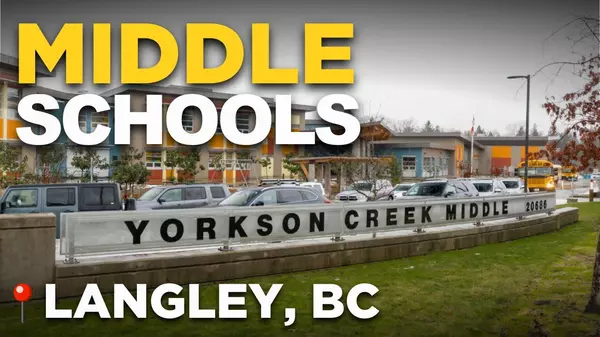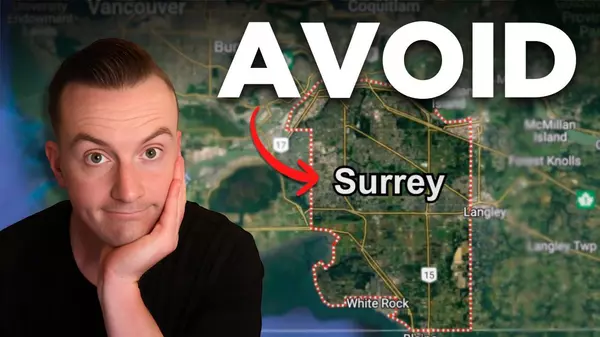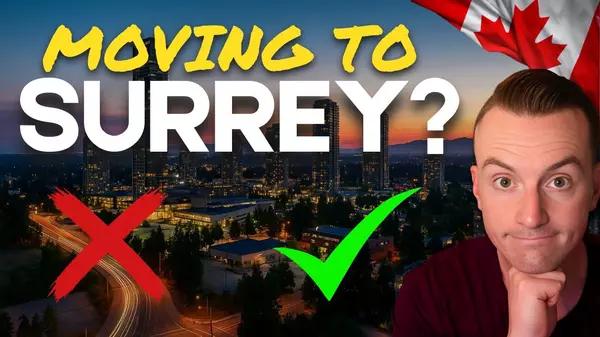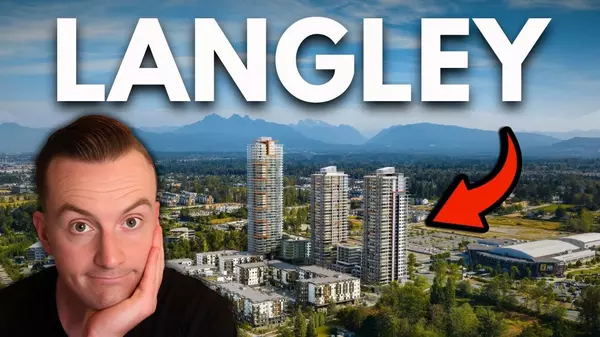How to Write a WINNING Offer | Buying a Home in Canada 2025
How to Write a Strong Offer on a Home in BC (That Actually Gets Accepted)
Imagine losing your dream home to someone else—not because they offered more money, but because their offer was simply stronger. It happens more often than you'd think.
In British Columbia’s competitive real estate market, writing a compelling offer is about more than just price. In this guide, we’ll cover what goes into a strong offer and how to position yourself as the most attractive buyer, whether you're a first-time buyer or a seasoned investor.
What Makes Up an Offer?
There are five main elements that make up a real estate offer in BC:
-
Price
-
Deposit amount
-
Completion and possession dates
-
Offer expiry time
-
Subjects and conditions
Let’s break each of these down.
Price: It’s Not Everything
Your offer price matters—but it’s not the only factor sellers consider.
Some sellers overprice with room to negotiate. Others price close to market value. In hot markets, sellers may price low to attract multiple offers.
If there's an offer date in place, prepare to compete. In a "first come, first served" scenario, acting quickly can make your offer stand out.
Deposit: Show You're Serious
A standard deposit in BC is around 5% of the purchase price. This is typically due within 24 hours of subject removal.
Want your offer to look more attractive? Increase your deposit. A higher deposit signals commitment and reduces risk for the seller.
In BC, deposits are generally paid after subjects are removed, unlike other provinces where deposits are required up front.
Completion & Possession: Timing Matters
In BC, completion (when title transfers) and possession (when you get the keys) often happen on different days.
-
Completion: Legal and financial paperwork finalized.
-
Possession: Buyer physically takes over the home.
Sellers may prefer offers that allow more time between these dates so they can coordinate their own purchase and move.
Avoid scheduling completion on a Friday to prevent weekend delays. Aim for midweek and request possession 1–5 days later.
Offer Expiry: Balance Urgency with Flexibility
Setting an expiry date gives the seller a window to respond. Your agent should confirm the seller is available before setting it.
Too short, and you risk frustrating them. Too long, and they might entertain other offers. Find a balance that works for both sides.
Subjects & Conditions: Do Your Homework First
Subjects protect buyers and give you time to do due diligence. Common subjects include:
-
Financing approval
-
Satisfactory appraisal
-
Home inspection
-
Title review
-
Insurance approval
-
Strata document review (if applicable)
The fewer subjects your offer includes, the stronger it looks to a seller. To reduce your subjects:
-
Review strata docs and the property disclosure statement in advance
-
Get pre-approved for a mortgage
-
Consider pre-offer inspections (in hot markets)
Understand the Offer Strategy: Set Dates vs. Anytime Offers
There are two types of offer timelines:
-
Offers anytime: Make your move quickly but strategically
-
Offer date set: You have time to prepare, but competition is expected
With the new BC regulations, early (bully) offers are no longer allowed if a set date is chosen. This gives everyone a fair chance.
Know the Buyer's Right of Rescission
BC's Buyer Rescission Period gives buyers three business days to back out of a deal after final acceptance. The penalty is 0.25% of the purchase price.
If your offer contains subjects, this rescission window becomes irrelevant. But it’s still helpful to understand this consumer protection rule.
What Stays with the Home?
In most cases, these items stay:
-
Major appliances (fridge, stove, washer/dryer)
-
Built-in microwaves
-
Blinds and window coverings
You can request extras or ask for items to be excluded—just make sure everything is written in the contract.
Fixtures (attached to the home) usually stay. Chattels (movable items) usually go. If in doubt, clarify in writing.
Writing a Strong Offer: Pro Tips
-
Support your price: Use comparable sales to justify your offer.
-
Include a letter or video: Sellers often feel emotionally attached to their homes. A short note or video can tip the scales.
-
Be flexible: Align your dates with what works for the seller.
-
Be prepared: Review all documents before writing your offer.
-
Ask smart questions: About the title, disclosure, strata, insurance, and more.
Your real estate agent can also present your offer with a personalized video that explains your motivations and walks the seller through your logic—this often makes a huge impact.
The Seller’s Response: What to Expect
Once your offer is submitted, the seller can:
-
Accept it as is (rare unless it’s full price)
-
Reject it outright
-
Counter offer (most common)
If they counter, you can:
-
Accept their changes
-
Counter back
-
Walk away
Also note: Offers can be rescinded in writing, even before the expiry time. So don’t take too long to respond.
Final Thoughts
Writing a strong offer is both an art and a science. It's about more than just the dollar amount—it's about positioning, timing, and understanding what matters most to the seller.
If you’re thinking of buying a home in Surrey, Langley, or anywhere in Greater Vancouver and want expert guidance through the entire offer process:
📞 Book a Call with Me: Schedule a Consultation
📢 Subscribe to my YouTube Channel: Living in the Lower Mainland
🏡 Search for Homes: Homes for Sale
Categories
Recent Posts










GET MORE INFORMATION

